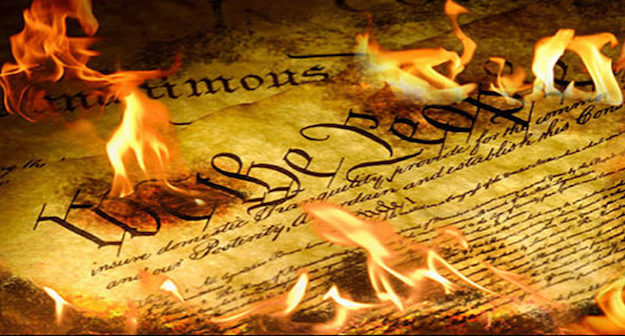
That “goddamned piece of paper” – again
This story goes back about 7 months, but it’s still as relevant today as it was then, and will become more so as we get closer to the 2020 elections. It’s about a lawsuit that struck down a Kansas State voter I.D. law…
I recall reading about it but didn’t give it much more than a passing tsk-tsk at the time. But somehow it recently resurfaced. I thought it was something new so I read it judiciously. And that’s when it hit me. As I’m a States Right guy, I don’t know why it didn’t then, but it sure struck a chord this time around.
In June 2018, Reuters reported that “A federal judge struck down a Kansas law requiring proof of U.S. citizenship to register to vote in a decision on Monday that could make voter registration easier in the state in the run-up to November mid-term elections. The ruling ended a two-year legal battle in which Democrats argued that such ID laws targeted voters who typically support their party, such as the young and minorities. Republican proponents of the law said it was necessary to ensure the integrity of elections.”
Yes, the Dems do have a point. What they appear to be saying is that the young and minorities are just too darn stupid and/or lazy to obtain the proper I.D. necessary to register. It sounds harsh, but how can we conclude anything else. According to the Democrat Party, their voters are just that stupid. It’s a wonder they can find their way out of bed in the morning, much less to the polls.
At the center of this democrat firestorm was/is one of the Kansas State law’s most adamant supporters, Kris Kobach, Secretary of State for Kansas and failed candidate for Governor. If there is a political figure almost as hated by Dems as Donald Trump, it is he.
That’s enough back story.
 Regarding the lawsuit, it appears to me to be complete bullcrap. The Eleventh Amendment clearly prevents this action from being heard in a federal court, in order to protect a State’s sovereign immunity.
Regarding the lawsuit, it appears to me to be complete bullcrap. The Eleventh Amendment clearly prevents this action from being heard in a federal court, in order to protect a State’s sovereign immunity.
Now I am not a judge or lawyer, but I can read, and as far as I can see, this federal judge is ruling against a legally passed Kansas State law which means, by default, the defendant in the case must be the State of Kansas, not Kris Kobach.
The Eleventh Amendment was ratified in 1798 in order to overrule the Supreme Court’s decision that a South Carolina citizen could sue the state of Georgia for money damages. [Chisholm v. Ga., 2 U.S. 419 (1793)] This decision caused uproar amongst the states because it impinged on the sovereignty of the state, which was supposed to have been retained in the Constitution. Shortly thereafter, the amendment was passed.
The Eleventh Amendment:
The judicial power of the United States shall not be construed to extend to any suit in law or equity, commenced or prosecuted against one of the United States by Citizens of another State, or by Citizens or Subjects of any foreign state.
But some would say that the suit was brought by two Kansas State residents, which it was, so the Amendment would not apply.
Yes, originally, the Eleventh Amendment only barred citizens of other states suing a state in a judicial branch jurisdiction, but it was extended to include residents of the same state as well through the Hans v. Louisiana case.
In other words, a state may not be sued in federal court by its own citizen(s) or citizen(s) of another state, unless the state consents to jurisdiction. A federal court cannot even hear the case if a state is the defendant.
So please tell me how this case could be filed in a federal district court, bypassing the Eleventh Amendment and subsequent court precedence and was allowed to proceed, much less stand – because I just don’t get it.
This appears to me to be just another case of the federal judiciary overstepping its authority.
Written by Brent Smith for KVIA ~ ABC News ~ January 17, 2019.
